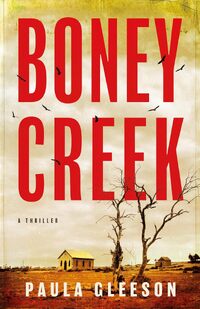I have always wanted to be a seal. During family holidays on the chilly English
coast my childhood dream was to walk into the sea, magically become a seal and
swim to the horizon without a backward glance at family and friends left on
the beach. My pale, thin skin had gone to be replaced by a grey pelt lined with
thick blubber. My hands had become flippers and my legs had fused into a
powerful tail. That small, round, funny face of mine had turned into a long
sleek snout bristling with whiskers and capped with beautiful dark eyes.
And I would be happy. I would have the freedom of the seas, the freedom to slide
through the waves, hunt fish and frolic for the amusement of passengers on
passing ships.
This escapist fantasy has endured and led me to write my first novel, THE LANGUAGE OF THE SEA. It
is set in Cape Cod where Leo Kemp loses both his job as marine biologist and his
10 year-old son in a boating accident. He takes his students on a last field
trip at sea and is swept overboard in a sudden storm. He finds himself in the
water surrounded by seals whose secret language he has been studying for years.
What follows is Leo’s journey into myth as he lives with a pod of seals on the
foreshore of the Cape, scrabbling an existence from seaweed and shellfish. The
myth of "Selkies," humans who become seals, is very much part of Leo’s story.
That myth is still believed in the fishing communities on the Celtic rim in
Britain. I have heard old men in the Arran Islands off the Irish coast tell of
how seals will come ashore on a stormy winter night, shed their pelts to become
beautiful women who woo and wed local fishermen. Years later the women will
walk back into the sea during a mid-winter storm and become seals again, leaving
behind empty beds, broken hearts and motherless children.
This novel is not a mythical story however. It is rooted in the reality of a
family riven by the loss of a child. It is about a scientist convinced that the
oceans about which we know so little hold the key to the future of the planet.
And it is about the search for redemption by a man anguished over the loss of
his son. And of course this book, as the title suggests, is about the secret
language of seals and their natural habitat, the sea.
James MacManus
6 comments posted.
Though I'm no fan of vampire stories, I like merpeople and don't mind shapeshifters. This sounds like a book I'd enjoy.
(Sigrun Schulz 3:32am July 20, 2011)
Your book sounds like a beautiful story. I have read other books about the Selkies and think they are such wonderful creatures.
Good luck with your book.
(Robin McKay 1:24pm July 20, 2011)
I've read one book about selkies and enjoyed it very much. The only unfortunate thing about being a seal is maybe being eaten by a whale but other than that it sounds intriguing! Your story does sound good!
(Jeanne Sheats 3:08pm July 20, 2011)
I like looking for seals on Pier 39 in California and around the Cape in New England. They look so playful and I'm sure a story with seals as a mainstay would be good.
(Alyson Widen 5:31pm July 20, 2011)
I've always loved seals, and found them to be fascinating creatures. The closest I've come to one is at the zoo, unfortunately. I find that they have a story to tell in those large eyes of theirs, as they turn their heads to look at you. I cringe when I hear stories of the ones that are beaten for their fur, and cheer at the ones that live freely in the water, and are able to swim about in their pods, if that's what they're called. I can't say I would want to be one, because there are so many amazing animals to choose from. I would really love to read your story. I know it would be a real gut-wrencher, and I'm just in the mood right now for such a book!! Congratulations, and best of luck on your future endeavors. I'm sure you won't have any problems in this business.
(Peggy Roberson 10:57pm July 20, 2011)


 © 2003-2025 off-the-edge.net
all rights reserved Privacy Policy
© 2003-2025 off-the-edge.net
all rights reserved Privacy Policy